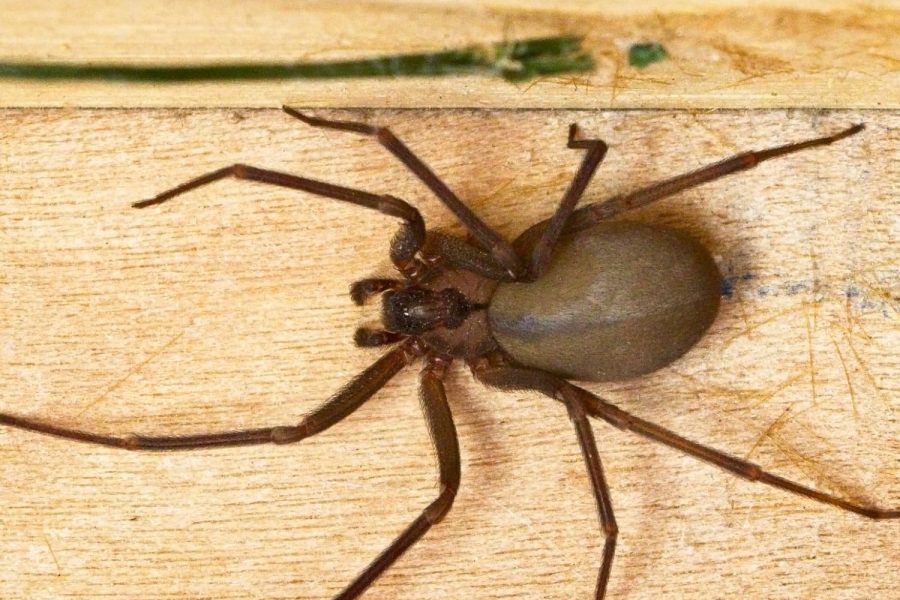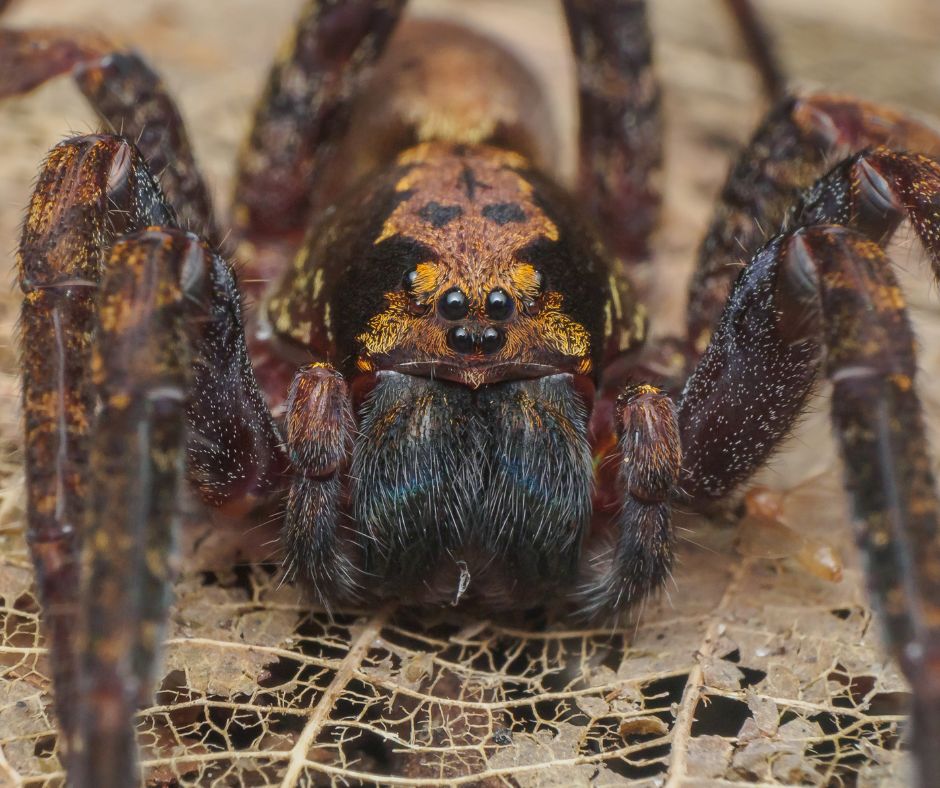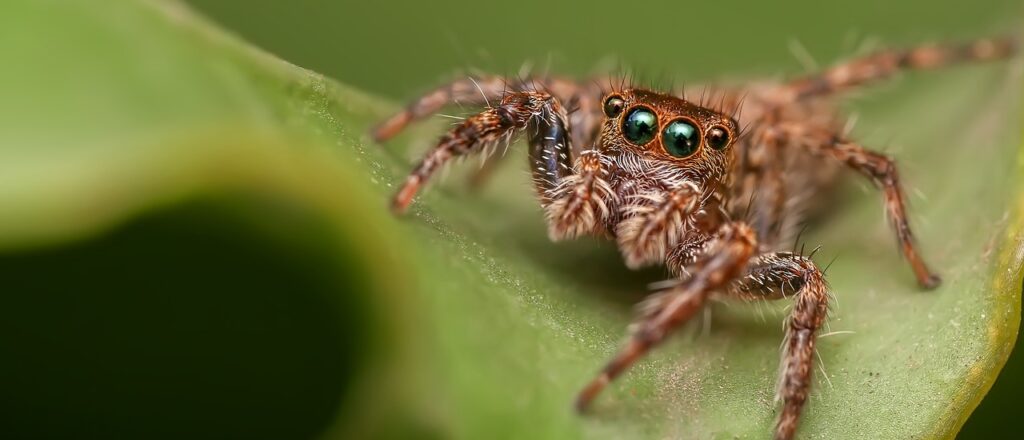
Learn if There is a Spider Season with James River
Some say spider season is at the beginning of fall when the temperatures drop, and spiders escape the frigid weather in the warmth of your home. However, others claim that spring brings an abundance of spiders due to new growth and ideal outdoor conditions. On the other hand, the sunny summer may increase spider activity.
So, when exactly is spider season?
In this blog from James River Pest Solutions, you’ll discover the truth about spiders and how the seasons affect them. Let’s settle this controversy once and for all!
The Simple Answer
There is no true spider season.
In fact, spiders are quite abundant all year long. The only exception is that some spider species slow down significantly during chilly winters, so you’ll notice them far less.
Spiders are incredibly resilient little creatures. Over thousands of years, they have developed remarkable adaptations allowing them to bear the heat of the summer and make it through freezing winters.
The mating season for most spider species is late summer to early fall. During this time, you may notice more spiders around your property or perhaps in your home. This is because they are moving around more to search for a mate. However, it certainly doesn’t mean the spiders weren’t there beforehand.
Myth: Spiders Come Indoors in the Fall to Escape the Cold Weather
Have you ever been told that spiders will enter your home as the weather cools in autumn? While other critters may do this, it is not the case for spiders. The spiders you see indoors are common “house spiders.” They typically live their entire lives indoors and have done this for centuries. Believe it or not, humans have shared their homes with house spiders since the days of the Roman Empire.
House spiders are very different from outdoor species. The spiders you may spot in your yard, at the local park, while camping, or on a hike will rarely enter your home. There’s virtually no need for them to do so. However, if they wander into your home, they are likely searching for food due to a lack of resources in their natural environment. Outdoor spiders will usually die indoors or never reproduce at the very least.

Every Season is Spider Season
Perhaps you are wondering if the lack of a specific spider season is a good thing or not. If there was just one time of the year when you had to worry about the abundance of these creepy crawlers, you might rest easier on their off-seasons.
Nevertheless, this has always been a fact with spiders, so it shouldn’t make you even more fearful of them than before. To better understand these fascinating eight-legged critters, we discuss the life of spiders during each season of the year.
Winter
Spiders have very interesting ways to get through even the coldest of winters. For some, their activity levels decrease as they converse energy. Others hide away in the coziest location they can find, like a pile of rocks or leaves. The spider remains there for the bulk of the winter season. During this time, they will enter a state called diapause. Essentially, the spider slows down the functions of its body. Many produce a compound called glycol that works like your car’s antifreeze.
Another way these incredible creatures survive the harsh winter weather is by giving their eggs the best possible chance at life. Although an adult spider can make it through freezing temperatures, its eggs cannot. So, spiders lay their eggs in the fall and wrap them in a thick, insulating web sac. Then, they ensure they have found the warmest spot possible to keep their eggs. This is one of the few reasons an outside spider may make its way into your home. Here, the female spider finds ideal temperatures and safety for her eggs.
Therefore, it can be wise to check the basement, corners, and behind large furniture and appliances for spider eggs in the late fall and early winter. However, you can expect the mother to have escaped to the outdoors, where she is most comfortable.
Spring
In the spring, temperatures warm, and the ice thaws. This brings heightened spider activity as they emerge from their winter homes. Despite the increase in movement, do not be fooled by thinking spring is spider season. Just because winter slows them down doesn’t mean they aren’t still present.
Because of several factors, like the blooming of fresh flowers, warm temperatures, and an increase in the spider’s prey, these critters will certainly be out and about. Some species will lay their eggs in the warm spring rather than fall. So, it’s another good time to be on the lookout for spider eggs in your home or on your property.
Summer
Summer brings favorable temperatures and plentiful food sources for spider species of all kinds. However, when their ideal conditions tilt off balance, they may invade your home in search of food.
And it’s not your sugary crumbs on the kitchen countertops that will attract them. It’s the various insects, like flies, moths, and even other spider species. Summer rain causes many different bugs to find shelter in your home. While spiders are resilient and not bothered by rainfall to the same degree as other pests, they will follow their prey into your home.
So, if you notice an increase in insects indoors, you may want to keep your eyes peeled for spiders, too.
Fall
Many people regard fall as the primary spider season. Even though spiders aren’t necessarily more numerous in autumn, you may see a lot more than during other times. This is because fall is the spider’s mating season. Therefore, you’ll likely see males wandering as they seek a mate.
And as mentioned before, some species lay their eggs in autumn. Sometimes, they choose the safety of your home to protect their eggs from the chilly winter weather ahead.

What Spiders are in Virginia?
It’s important to be familiar with common Virginia spider species. That way, if you discover the creepy crawlers in the dark corners of your home, you know whether you should be alarmed. Luckily, most spiders in Virginia and the entire United States are nonvenomous and rarely bite humans.
Non-Venomous Spiders of Virginia
Wolf Spiders–
- Dark brown with yellow markings
- About an inch long
- Found on the floors near furniture and walls
- Hunt prey using speed rather than a web
House Spiders–
- Tiny yellow-brown bodies with dark markings
- Commonly found in Virginia homes
- In the ceiling corners, under furniture, in the basement, garage, or crawl space
Cellar Spiders–
- Yellow-brown coloring with tiny bodies and very long legs
- Also known as daddy long-leg spiders
- Often found on the ceilings of attics and bathrooms
- Breed rapidly and continuously, quickly leading to infestations
Orb-weaver spiders–
- Usually brightly colored and vary in size, but all have large abdomens
- There are many kinds of orb-weaver spiders
- Typically found outdoors in gardens and lush landscapes
- Can sometimes bite when provoked
Venomous Spiders of Virginia
Black Widow–
- Shiny black bodies, with a red hourglass-like marking on the underside
- More commonly found outdoors in piles of wood or debris
- When bitten, seek medical treatment as soon as possible
- Symptoms include fever, increased blood pressure, nausea, and more
Brown Recluse–
- Brown with a violin-shaped marking on its back
- Usually remain outside in hidden locations
- Bites are rare but require immediate medical attention
- Less commonly found in Virginia

Preventing Spiders All Year Long
Because spider season is every season, it is crucial to adopt continuous prevention methods to keep the critters at bay. Use the following tips and tricks for a spider-free home and yard:
- Reduce the clutter in your home, attic, garage, and basement. Keep shoes, boxes, and other ideal hiding spots off the ground to discourage spiders from using them as shelter.
- Remove piles of yard debris, like leaves, wood, and rocks, from your property.
- Keep your home sealed by repairing even the tiniest of cracks and openings.
- Vacuum regularly, ensuring you get under the furniture and in all the small spaces.
- Safely knock down webs when spotted.
- Have regular pest control to rid your home of spiders and insects that may attract them.
Seasonal Pest Control with James River
We encourage all members of our community to schedule seasonal pest control services. That way, your home is inspected multiple times of the year for pests of all kinds, including sneaky spiders.
Give James River Pest Solutions a call today to keep the bugs and spiders out of your home.
Furthermore, if you suspect a spider infestation of any kind, reach out to our experienced and skilled team to eliminate the creepy crawlers.